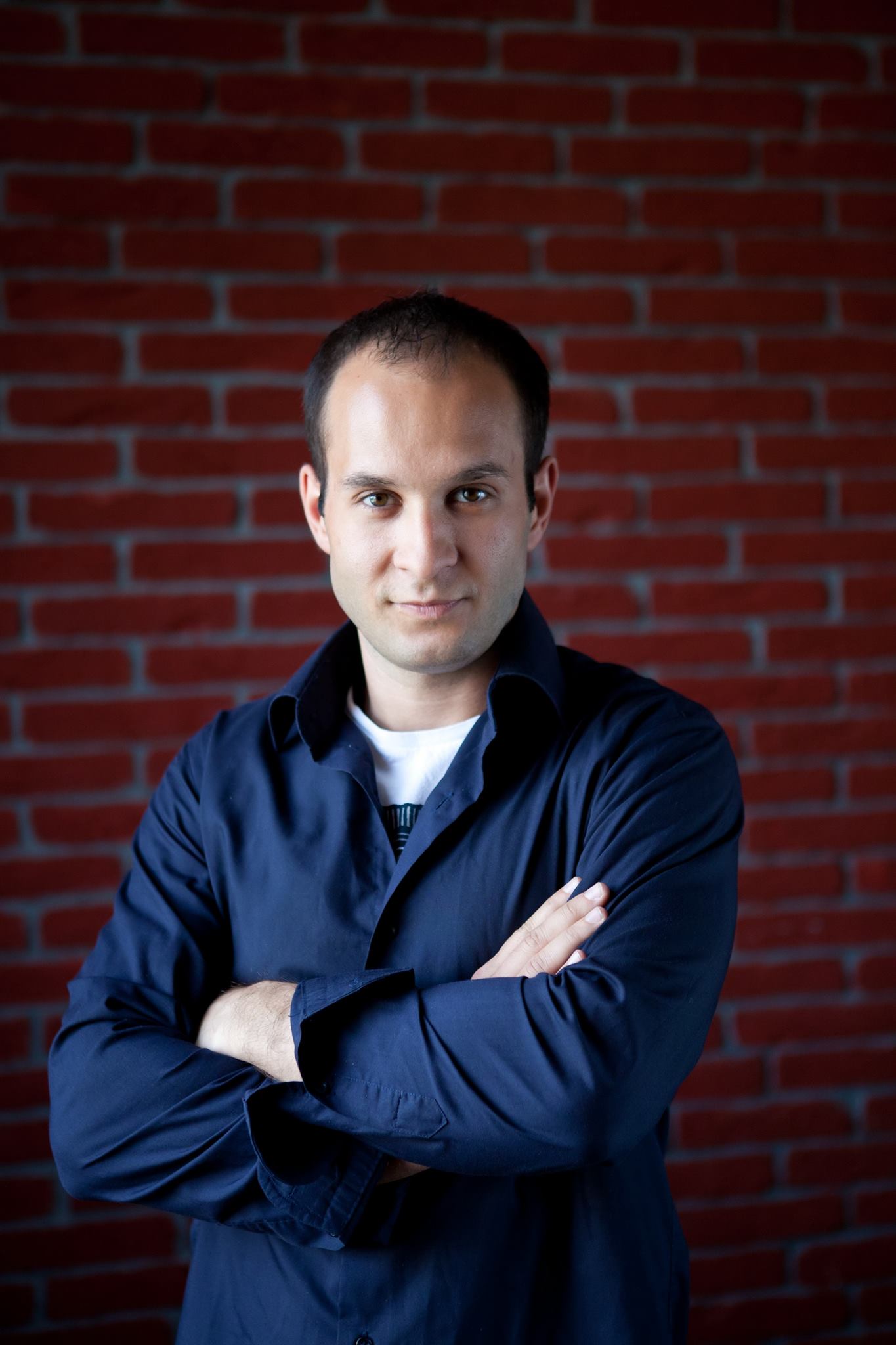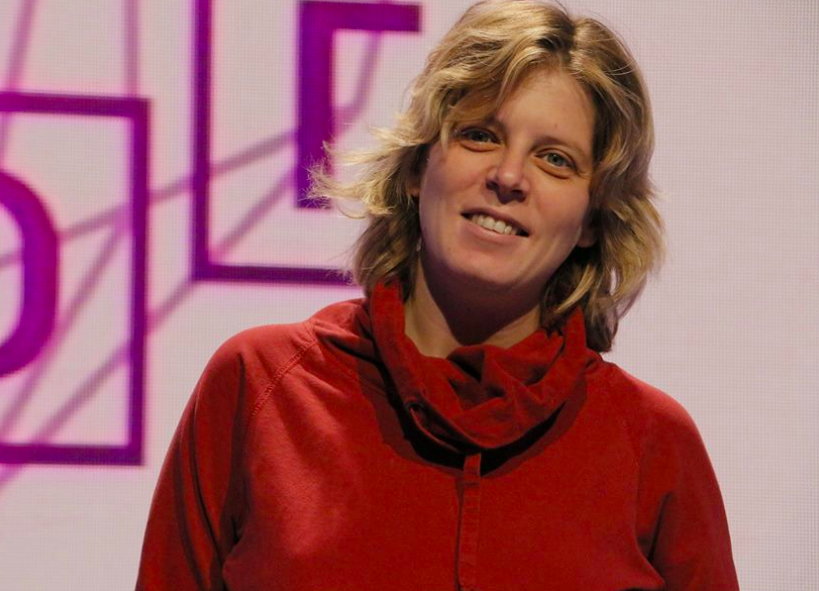Online, creativity and efficiency: what will be the charity in Ukraine in 2021
In 2020, the world changed significantly: countries were closed to quarantine, many businesses and firms suspended their work, people were forced to sit at home for months. Coronavirus has affected all walks of life and, of course, affected charity. Charitable foundations and organizations also had to adapt to the new reality. Many began raising funds to help hospitals and physicians fight COVID-19 or to help those looking for ventilators to cope with the disease.
We asked representatives of the charity sector how, in their opinion, charity in Ukraine will change in 2021, what trends to expect and what to prepare for.
Go online and fight coronavirus
 Larysa Sidelnyk, program coordinator of the All-Ukrainian Charitable Foundation "Krona", says that the most traumatic for the charity sector was the transition to the virtual plane. Many organizations built their work directly with the beneficiaries. These are the locomotives that pull all the direct work with the needy, who are most sensitive to the needs of vulnerable groups and actually "stitch" huge holes in social problems. The inability to meet with wards, visit institutions, cancel offline events where you can build partnerships and attract resources - a significant loss. It is much more difficult now to win the attention of potential donors and motivate them without personal contacts.
Larysa Sidelnyk, program coordinator of the All-Ukrainian Charitable Foundation "Krona", says that the most traumatic for the charity sector was the transition to the virtual plane. Many organizations built their work directly with the beneficiaries. These are the locomotives that pull all the direct work with the needy, who are most sensitive to the needs of vulnerable groups and actually "stitch" huge holes in social problems. The inability to meet with wards, visit institutions, cancel offline events where you can build partnerships and attract resources - a significant loss. It is much more difficult now to win the attention of potential donors and motivate them without personal contacts.
"In turn, this contributed to the emergence of new formats of work and fundraising. Digital charity will definitely be with us in 2021 and beyond. Online learning, streaming, blogging, joining new popular social networks, using ready-made creative programs, targeting, online advertising - now our arsenal of informing people about the problems we solve, reporting, raising funds. New online platforms for fundraising have appeared. These are social enterprises, marketplaces, which give a platform to charitable organizations and donors to "meet". Most of them earn by accepting a percentage of donations, "says Larysa Sidelnyk.
According to Larysa Sidelnyk, another trend is charitable marketing, business penetration into charity. For example, people from the commercial sector go to charity, create their own organization or project, using business approaches, knowledge and ideas for the financial sustainability of their projects. And this stimulates "traditional" charitable organizations with their humanitarian missions to learn to "sell", "advertise", create creative information drives, earn.
"Another important trend, in my opinion, is the demand for honesty and sincerity. Last year, many people sharpened their bullshit detector. People began to feel better about fakes, lies, manipulations, fraud. We have learned to distinguish where only PR on charity, and where the real action. It is unlikely that an event that people can doubt will be so effective now. That is why philanthropists need to build their communications and programs as honestly and professionally as possible. Do not exaggerate your achievements, but show the result, "said Sidelnyk.
Also, Larysa Sidelnyk added that the pandemic affected the activities of many organizations. This year we will see a decrease in revenues in those areas with which we worked until 2020. Business and people have become poorer. More active support may be in the fight against covid-19, assistance to hospitals, information projects.
 Vadim Hadzhioglov, head of the Center for Social Projects of the Future, said that now it is difficult to talk about how charity will change in general in our country, as the example of the previous year, we realized that at some point ordinary life can change greatly.
Vadim Hadzhioglov, head of the Center for Social Projects of the Future, said that now it is difficult to talk about how charity will change in general in our country, as the example of the previous year, we realized that at some point ordinary life can change greatly.
"Speaking specifically about the areas that our fund plans to implement - it is to adhere to the strategy launched in 2020. We will pay a lot of attention to helping hospitals in the fight against coronavirus, as well as maximum care online - we try to turn charitable contributions into the most affordable action to do good was simply in isolation at home during the lockdown, "said Vadim Hadzhioglov.
Collaboration and filling gaps
 Irina Gutsal, director of the dobro.ua charity platform, says that 2020 has forced charitable foundations to adapt to new circumstances, so 2021 will be about efficiency, creativity and collaboration.
Irina Gutsal, director of the dobro.ua charity platform, says that 2020 has forced charitable foundations to adapt to new circumstances, so 2021 will be about efficiency, creativity and collaboration.
"Since we were left literally without physical meetings, mostly all charitable activities will remain online. And in digital you have to compete with any content, from news to advertising, so the approach to creating content needs to change. Philanthropists now need to spend more time and resources on creating content for their projects, because content is our main way to attract people and funds, "said Gutsal.
Iryna Hutsal added that thanks to the pandemic, they have learned to quickly adapt to the needs of society and solve existing problems quickly and efficiently. It will not be possible to reduce revolutions any more. Wherever the state left gaps, they promptly participated and found modern tools to overcome them.
“The interaction between charitable foundations and business will reach a new stage, because during COVID-19 the corporate sector saw the huge impact it has on the social life of the country and felt the demand of its consumers who want to be involved in change and observe large-scale results. effort. People want and strive to be a part of great stories that change the country for the better, ”Iryna Hutsal summed up.
Transparency of interactions and the importance of unconditional assistance
 Kateryna Zhuk, director of Charity Tuner, says that in 2020, the year of the pandemic and the collapse of the medical, tax and social spheres, we can say unequivocally - the transparency of Fund-Donor-Government interactions has reached a new level .
Kateryna Zhuk, director of Charity Tuner, says that in 2020, the year of the pandemic and the collapse of the medical, tax and social spheres, we can say unequivocally - the transparency of Fund-Donor-Government interactions has reached a new level .
"Business is no longer important PR components of social responsibility. Paid stories, pointless corporate projects and strange ideas that are not related to the direction of business or real needs have disappeared almost everywhere. Donors stood up and helped here and now, but finally tried to do it as efficiently as real business should. I am more than sure that the trend will continue in the post-pandemic period. Our common task - I mean the charity sector, and recipients of funds, and hospitals, and government agencies - to show and tell about the importance of such assistance, clear and unconditional. And then everyone wins. No less important is the fact that business has begun to listen to the need in principle. Hospitals - ok, here and now we will help hospitals. Concentrators to people - ok,- said Kateryna Zhuk.
She also added that it was important for donors to know and see where and what exactly their help went to, see reports, see and know details. In addition, the pandemic has uncovered areas that have often been left behind because the socially disadvantaged, the elderly, people with chronic illnesses and disabilities are at maximum risk. But they also received help from business.
"All these stories of successful cooperation will definitely be continued. And the next step - business will understand the amount of work that in real life for years performed and is performed by non-profit organizations, and will begin to help with administrative costs, as has long been the case in the civilized world. It is strange to say it out loud, but this whole nightmare, in the end, will be a plus for the non-profit sector after the pandemic, "Kateryna Zhuk concluded.
Powerful business partners and inspiration for people
 Maria Artemenko, founder and head of the Charity Club charity foundation, says 2021 will also be held under the auspices of pandemics, quarantine and lockdowns. Quarantine and the onset of the pandemic have shown that very few charities are willing to manage and provide business services.
Maria Artemenko, founder and head of the Charity Club charity foundation, says 2021 will also be held under the auspices of pandemics, quarantine and lockdowns. Quarantine and the onset of the pandemic have shown that very few charities are willing to manage and provide business services.
"For a business that was ready to allocate funds, the issue of finding partners who could effectively and quickly sell large sums of money was quite acute. This was often closed by the agency’s PR rather than charitable foundations. I think this is an interesting moment. Public and charitable organizations need to think about how we can become a powerful partner for business, for the state and think about who we should become to be indispensable and have approached us as experts who can provide assistance, "said Maria Artemenko.
Maria noted that the pandemic is the fact that lavmark and powerful communities are working. So when it comes to volunteer fundraising, people trust people.
"In my opinion, now the number of people who are ready to support the solution of social problems with time, money and talent is greater than the foundations and public organizations that work on it. There are more opportunities for charitable foundations in terms of fundraising and fundraising than we can imagine. Therefore, the main question is how to take a step forward and convert this desire of people to change, help and support each other in effective actions, effective assistance through charitable or public organizations, "Artemenko explained.
Also, Maria added that the new trend will definitely be the flexibility of organizations. Following the example of the Club of Benefactors, the pandemic has given a powerful impetus to flexibility, and now they are integrating it into the daily life of the foundation. Strategy is good, but the world is changing fast, lockdowns and quarantines are announced in 3 days and we need to be morally and psychologically ready for change and adaptation. Either pause or run and feel free to move away from the strategy, if something can be more relevant now. To do this, you need to keep in the field and remember why there is an organization at all.
"We want to be where we need to be, and sometimes we need to restructure very quickly, and respond to the needs of people, children, hear the pain of the audience you work with, in order to be as useful as possible. We need to give people solutions. As an example, I can cite the situation with the Chernobyl fires. When the fires broke out, the entire Facebook feed was in angry messages, but no one gave a tool to address the issue. And we, in partnership with UAnimals, decided to be really useful, not to multiply posts about how awful everything is. This partnership was completely atypical and unplanned. During the three hours of the general meeting, we collected more than 350,000 hryvnias and even had to stop it because there was no request for more money for charitable assistance. And this is an example of what needs to be decided,- says Artemenko.
Maria summed up that it is worth sticking to the positive - charity without regret is in trend. We all want to live in a better world, people do not want tears and only sacrifice, people want to be useful help they can give. Charity should not add pain to people’s lives, it should inspire.
Author Anastasia Ishchenko
Read also - What is important to know if you want to find a job in charity
We asked representatives of the charity sector how, in their opinion, charity in Ukraine will change in 2021, what trends to expect and what to prepare for.
Go online and fight coronavirus
 Larysa Sidelnyk, program coordinator of the All-Ukrainian Charitable Foundation "Krona", says that the most traumatic for the charity sector was the transition to the virtual plane. Many organizations built their work directly with the beneficiaries. These are the locomotives that pull all the direct work with the needy, who are most sensitive to the needs of vulnerable groups and actually "stitch" huge holes in social problems. The inability to meet with wards, visit institutions, cancel offline events where you can build partnerships and attract resources - a significant loss. It is much more difficult now to win the attention of potential donors and motivate them without personal contacts.
Larysa Sidelnyk, program coordinator of the All-Ukrainian Charitable Foundation "Krona", says that the most traumatic for the charity sector was the transition to the virtual plane. Many organizations built their work directly with the beneficiaries. These are the locomotives that pull all the direct work with the needy, who are most sensitive to the needs of vulnerable groups and actually "stitch" huge holes in social problems. The inability to meet with wards, visit institutions, cancel offline events where you can build partnerships and attract resources - a significant loss. It is much more difficult now to win the attention of potential donors and motivate them without personal contacts. "In turn, this contributed to the emergence of new formats of work and fundraising. Digital charity will definitely be with us in 2021 and beyond. Online learning, streaming, blogging, joining new popular social networks, using ready-made creative programs, targeting, online advertising - now our arsenal of informing people about the problems we solve, reporting, raising funds. New online platforms for fundraising have appeared. These are social enterprises, marketplaces, which give a platform to charitable organizations and donors to "meet". Most of them earn by accepting a percentage of donations, "says Larysa Sidelnyk.
According to Larysa Sidelnyk, another trend is charitable marketing, business penetration into charity. For example, people from the commercial sector go to charity, create their own organization or project, using business approaches, knowledge and ideas for the financial sustainability of their projects. And this stimulates "traditional" charitable organizations with their humanitarian missions to learn to "sell", "advertise", create creative information drives, earn.
"Another important trend, in my opinion, is the demand for honesty and sincerity. Last year, many people sharpened their bullshit detector. People began to feel better about fakes, lies, manipulations, fraud. We have learned to distinguish where only PR on charity, and where the real action. It is unlikely that an event that people can doubt will be so effective now. That is why philanthropists need to build their communications and programs as honestly and professionally as possible. Do not exaggerate your achievements, but show the result, "said Sidelnyk.
Also, Larysa Sidelnyk added that the pandemic affected the activities of many organizations. This year we will see a decrease in revenues in those areas with which we worked until 2020. Business and people have become poorer. More active support may be in the fight against covid-19, assistance to hospitals, information projects.
 Vadim Hadzhioglov, head of the Center for Social Projects of the Future, said that now it is difficult to talk about how charity will change in general in our country, as the example of the previous year, we realized that at some point ordinary life can change greatly.
Vadim Hadzhioglov, head of the Center for Social Projects of the Future, said that now it is difficult to talk about how charity will change in general in our country, as the example of the previous year, we realized that at some point ordinary life can change greatly. "Speaking specifically about the areas that our fund plans to implement - it is to adhere to the strategy launched in 2020. We will pay a lot of attention to helping hospitals in the fight against coronavirus, as well as maximum care online - we try to turn charitable contributions into the most affordable action to do good was simply in isolation at home during the lockdown, "said Vadim Hadzhioglov.
Collaboration and filling gaps
 Irina Gutsal, director of the dobro.ua charity platform, says that 2020 has forced charitable foundations to adapt to new circumstances, so 2021 will be about efficiency, creativity and collaboration.
Irina Gutsal, director of the dobro.ua charity platform, says that 2020 has forced charitable foundations to adapt to new circumstances, so 2021 will be about efficiency, creativity and collaboration. "Since we were left literally without physical meetings, mostly all charitable activities will remain online. And in digital you have to compete with any content, from news to advertising, so the approach to creating content needs to change. Philanthropists now need to spend more time and resources on creating content for their projects, because content is our main way to attract people and funds, "said Gutsal.
Iryna Hutsal added that thanks to the pandemic, they have learned to quickly adapt to the needs of society and solve existing problems quickly and efficiently. It will not be possible to reduce revolutions any more. Wherever the state left gaps, they promptly participated and found modern tools to overcome them.
“The interaction between charitable foundations and business will reach a new stage, because during COVID-19 the corporate sector saw the huge impact it has on the social life of the country and felt the demand of its consumers who want to be involved in change and observe large-scale results. effort. People want and strive to be a part of great stories that change the country for the better, ”Iryna Hutsal summed up.
Transparency of interactions and the importance of unconditional assistance
 Kateryna Zhuk, director of Charity Tuner, says that in 2020, the year of the pandemic and the collapse of the medical, tax and social spheres, we can say unequivocally - the transparency of Fund-Donor-Government interactions has reached a new level .
Kateryna Zhuk, director of Charity Tuner, says that in 2020, the year of the pandemic and the collapse of the medical, tax and social spheres, we can say unequivocally - the transparency of Fund-Donor-Government interactions has reached a new level . "Business is no longer important PR components of social responsibility. Paid stories, pointless corporate projects and strange ideas that are not related to the direction of business or real needs have disappeared almost everywhere. Donors stood up and helped here and now, but finally tried to do it as efficiently as real business should. I am more than sure that the trend will continue in the post-pandemic period. Our common task - I mean the charity sector, and recipients of funds, and hospitals, and government agencies - to show and tell about the importance of such assistance, clear and unconditional. And then everyone wins. No less important is the fact that business has begun to listen to the need in principle. Hospitals - ok, here and now we will help hospitals. Concentrators to people - ok,- said Kateryna Zhuk.
She also added that it was important for donors to know and see where and what exactly their help went to, see reports, see and know details. In addition, the pandemic has uncovered areas that have often been left behind because the socially disadvantaged, the elderly, people with chronic illnesses and disabilities are at maximum risk. But they also received help from business.
"All these stories of successful cooperation will definitely be continued. And the next step - business will understand the amount of work that in real life for years performed and is performed by non-profit organizations, and will begin to help with administrative costs, as has long been the case in the civilized world. It is strange to say it out loud, but this whole nightmare, in the end, will be a plus for the non-profit sector after the pandemic, "Kateryna Zhuk concluded.
Powerful business partners and inspiration for people
 Maria Artemenko, founder and head of the Charity Club charity foundation, says 2021 will also be held under the auspices of pandemics, quarantine and lockdowns. Quarantine and the onset of the pandemic have shown that very few charities are willing to manage and provide business services.
Maria Artemenko, founder and head of the Charity Club charity foundation, says 2021 will also be held under the auspices of pandemics, quarantine and lockdowns. Quarantine and the onset of the pandemic have shown that very few charities are willing to manage and provide business services. "For a business that was ready to allocate funds, the issue of finding partners who could effectively and quickly sell large sums of money was quite acute. This was often closed by the agency’s PR rather than charitable foundations. I think this is an interesting moment. Public and charitable organizations need to think about how we can become a powerful partner for business, for the state and think about who we should become to be indispensable and have approached us as experts who can provide assistance, "said Maria Artemenko.
Maria noted that the pandemic is the fact that lavmark and powerful communities are working. So when it comes to volunteer fundraising, people trust people.
"In my opinion, now the number of people who are ready to support the solution of social problems with time, money and talent is greater than the foundations and public organizations that work on it. There are more opportunities for charitable foundations in terms of fundraising and fundraising than we can imagine. Therefore, the main question is how to take a step forward and convert this desire of people to change, help and support each other in effective actions, effective assistance through charitable or public organizations, "Artemenko explained.
Also, Maria added that the new trend will definitely be the flexibility of organizations. Following the example of the Club of Benefactors, the pandemic has given a powerful impetus to flexibility, and now they are integrating it into the daily life of the foundation. Strategy is good, but the world is changing fast, lockdowns and quarantines are announced in 3 days and we need to be morally and psychologically ready for change and adaptation. Either pause or run and feel free to move away from the strategy, if something can be more relevant now. To do this, you need to keep in the field and remember why there is an organization at all.
"We want to be where we need to be, and sometimes we need to restructure very quickly, and respond to the needs of people, children, hear the pain of the audience you work with, in order to be as useful as possible. We need to give people solutions. As an example, I can cite the situation with the Chernobyl fires. When the fires broke out, the entire Facebook feed was in angry messages, but no one gave a tool to address the issue. And we, in partnership with UAnimals, decided to be really useful, not to multiply posts about how awful everything is. This partnership was completely atypical and unplanned. During the three hours of the general meeting, we collected more than 350,000 hryvnias and even had to stop it because there was no request for more money for charitable assistance. And this is an example of what needs to be decided,- says Artemenko.
Maria summed up that it is worth sticking to the positive - charity without regret is in trend. We all want to live in a better world, people do not want tears and only sacrifice, people want to be useful help they can give. Charity should not add pain to people’s lives, it should inspire.
Author Anastasia Ishchenko
Read also - What is important to know if you want to find a job in charity